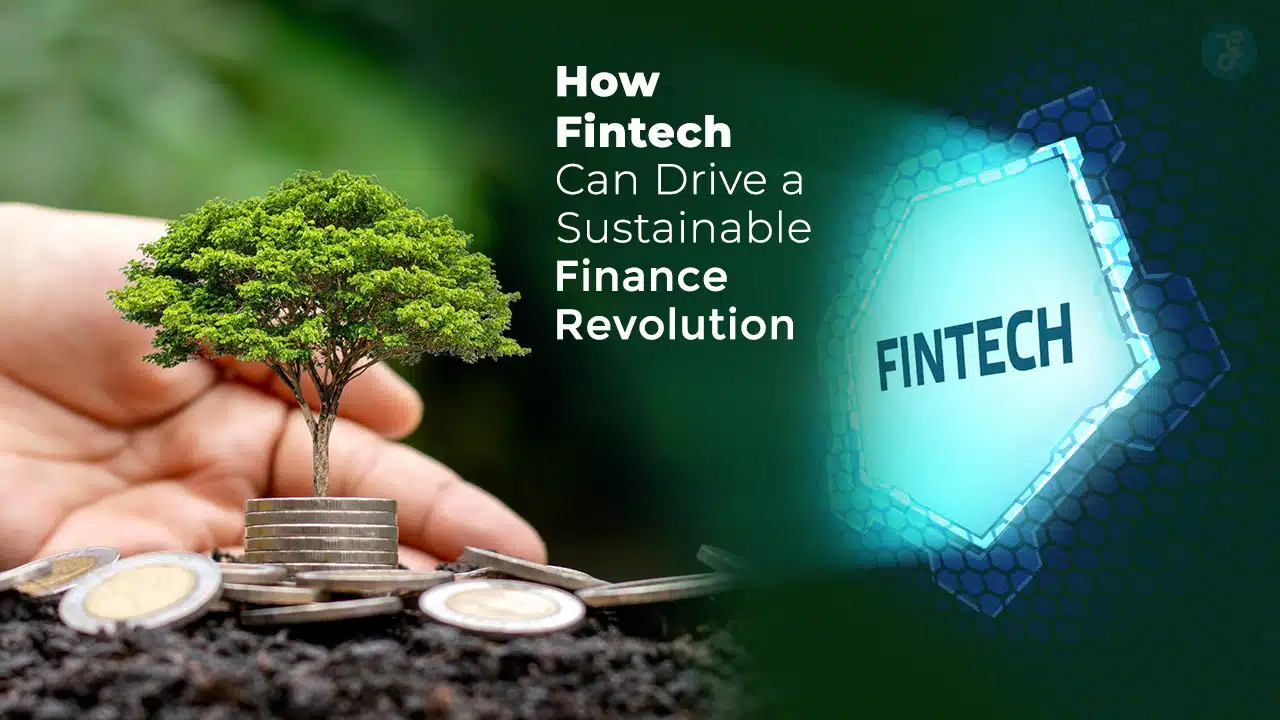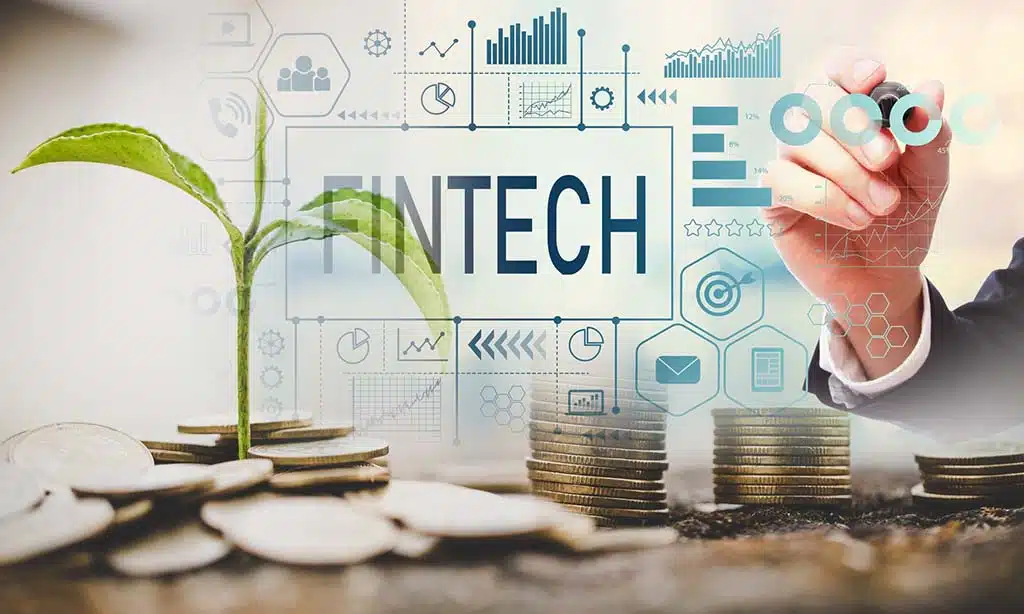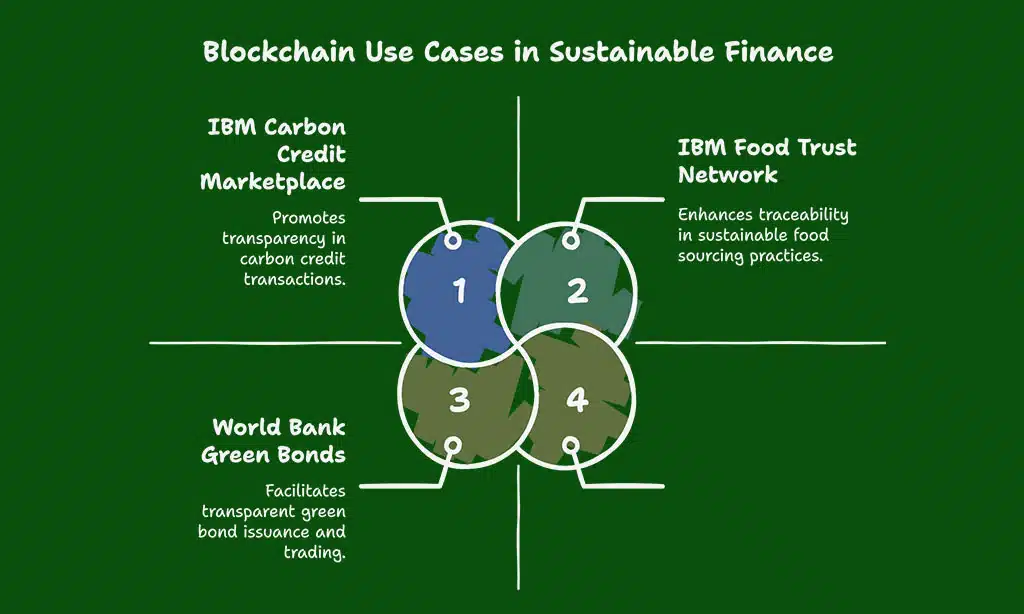The intersection of fintech and sustainable finance is rapidly shaping the future of investing, offering an unprecedented opportunity to create positive social and environmental change through financial technologies.
The world is undergoing a paradigm shift where investors, regulators, and businesses alike are aligning financial strategies with environmental and social governance [ESG] principles. As climate change, resource depletion, and social inequality intensify, sustainable finance offers a solution that can address these pressing global challenges.
Financial technology [fintech] plays a pivotal role in this transition. Fintech enables scalable, efficient, and transparent investment models that enhance access to sustainable finance.
Whether through AI-powered investment strategies, blockchain for transparent reporting, or mobile apps fostering financial inclusion, fintech provides innovative tools that facilitate the transition to sustainable investments.
This article will explore how fintech can drive a sustainable finance revolution, delving into key technologies, benefits, challenges, and actionable insights for investors and businesses committed to a sustainable future.
Understanding Fintech’s Role in Sustainable Finance
To fully grasp how fintech is transforming sustainable finance, it’s essential to understand what fintech is, what sustainable finance entails, and how the convergence of these sectors is enabling a green financial revolution.
What is Fintech?
Fintech refers to technological innovations that enhance, streamline, and democratize financial services. With tools like mobile payments, online lending, robo-advisory, and blockchain, fintech has disrupted traditional banking and finance systems. By digitizing financial services, fintech has made it easier to access and manage finances globally, especially in emerging markets. These innovations contribute to improving the inclusivity and efficiency of financial services.
Actionable Tip:
For businesses looking to embrace fintech, start by evaluating technologies that streamline operations or enhance customer engagement. Invest in blockchain for transparency, AI for analytics, or digital platforms to enable access to global investment markets.
Fintech Innovations and Examples
| Innovation | Description | Example |
| Blockchain | Decentralized technology used to secure financial transactions | Bitcoin, Ethereum |
| Robo-Advisors | Automated platforms that manage investments via algorithms | Betterment, Wealthfront |
| Digital Payments | Digital methods for transferring money and making payments | PayPal, Venmo |
| Peer-to-Peer Lending | Online platforms that allow lending and borrowing directly between individuals | LendingClub, Prosper |
Defining Sustainable Finance
Sustainable finance refers to financial activities that promote long-term positive environmental, social, and economic outcomes. Investors focus on projects and companies that meet ESG [Environmental, Social, Governance] criteria.
The goal of sustainable finance is to mobilize capital toward investments that foster environmental sustainability, enhance social well-being, and improve governance practices.
Sustainable finance includes various financial instruments like green bonds, impact investing, and socially responsible investment [SRI] funds, all designed to support initiatives that are not only financially viable but also socially and environmentally responsible.
Actionable Tip:
To make informed sustainable investments, review ESG ratings of potential investment opportunities using platforms such as Sustainalytics and Morningstar. Investors can filter their portfolios based on these criteria to ensure that they align with their values.
Types of Sustainable Finance Instruments
| Instrument | Purpose | Example |
| Green Bonds | Debt instruments used to fund environmentally sustainable projects | World Bank Green Bonds |
| Social Impact Bonds | Investments aimed at addressing societal issues like healthcare or education | Social Finance’s SIBs |
| ESG Funds | Investment funds focused on environmental, social, and governance factors | Vanguard ESG Funds |
How Fintech Drives Sustainable Finance
Fintech enhances sustainable finance by providing innovative solutions that address the key challenges of transparency, accessibility, and efficiency. The combination of digital tools and data analytics facilitates smarter, data-driven investment decisions and provides investors with real-time insights into how their money is impacting sustainability goals.
Key ways fintech drives sustainable finance include:
- Enhanced transparency: Blockchain and smart contracts ensure that investments are used as intended.
- Democratized access: Fintech platforms enable smaller investors to participate in high-value sustainable projects that were previously inaccessible.
- Efficiency in capital allocation: AI-driven platforms optimize how capital is deployed toward impactful projects, increasing the likelihood of achieving positive outcomes.
Actionable Tip:
Investors can leverage fintech tools like Impact Management Project [IMP], which provides a framework for measuring, managing, and optimizing the impact of investments across various sectors, including environmental sustainability.
Key Fintech Innovations Driving Sustainability
Several fintech innovations are instrumental in driving the sustainability agenda. These technologies help make sustainable finance more efficient, transparent, and inclusive, enabling investors to align their portfolios with global sustainability goals.
Blockchain for Transparency and Security
Blockchain technology offers an immutable and transparent ledger system that ensures all transactions are secure, traceable, and verifiable. In sustainable finance, blockchain can enhance the accountability of investments by tracking the use of funds in real-time. It also prevents fraud, greenwashing, and double-counting in initiatives like carbon credit trading.
Example:
- Carbon Credit Trading: Blockchain facilitates secure carbon credit trading by ensuring that each credit is traced, reducing the risk of fraudulent claims. IBM’s Carbon Credit Marketplace is a prime example of using blockchain to promote sustainable environmental practices through transparent carbon offset markets.
Blockchain Use Cases in Sustainable Finance
| Use Case | Description | Example |
| Carbon Credit Trading | Ensures transparent, traceable carbon credit transactions | IBM Carbon Credit Marketplace |
| Supply Chain Transparency | Tracks the sustainability practices of raw materials sourcing | IBM Food Trust Network |
| Green Bond Issuance | Facilitates the issuance and trading of green bonds | World Bank Green Bonds |
AI and Data Analytics for Impactful Investments
Artificial intelligence [AI] and machine learning can process vast amounts of data to assess the potential impact of investments. These technologies help investors predict future environmental, social, and financial outcomes, enabling smarter decisions. For example, AI can predict the effect of climate change on investments or assess how a company’s governance structure might influence its long-term stability.
Example:
- MSCI ESG Ratings: This platform leverages AI to assess the ESG performance of companies, enabling investors to make data-backed decisions on sustainable investments.
AI in Sustainable Finance
| Use Case | Description | Example |
| ESG Risk Prediction | Analyzes company behavior to predict environmental and governance risks | MSCI ESG Risk Ratings |
| Climate Risk Forecasting | Uses AI to predict the financial impact of climate change on specific investments | Climate Finance Analytics |
| Supply Chain Optimization | AI identifies areas where supply chains can be more sustainable | SAP Leonardo AI |
Mobile Payments and Financial Inclusion
Fintech, particularly mobile payments, has dramatically expanded financial inclusion, especially in developing regions. Platforms like M-Pesa have allowed individuals without access to traditional banking systems to make payments, save money, and invest. These solutions have been instrumental in empowering underserved populations to engage in sustainable economic activities, from small-scale sustainable farming to micro-lending.
Example:
- M-Pesa: With over 40 million active users in Kenya alone, M-Pesa enables individuals to send money, receive payments, and invest through their mobile phones, promoting financial inclusion and social development.
Mobile Payment Systems for Financial Inclusion
| Platform | Description | Example |
| Mobile Banking | Provides banking services via mobile phones | M-Pesa, GCash |
| Microfinance Lending | Provides small loans to entrepreneurs in underserved regions | Kiva, MicroLoan Foundation |
| Mobile Payment Systems | Offers accessible, easy-to-use payment methods for individuals | PayPal, Venmo |
The Benefits of Fintech for Sustainable Finance
Fintech brings a multitude of advantages to the table, ensuring that sustainable finance can flourish in the digital age. From increasing efficiency to making sustainable finance more accessible, the benefits of fintech are wide-reaching.
Improved Accessibility for All Investors
One of the key benefits of fintech is that it lowers the barriers to entry for sustainable finance. Through mobile apps, online platforms, and digital wallets, small-scale investors can access green bonds, ESG funds, and other sustainable financial products without needing to invest large amounts.
Example:
- Betterment: This robo-advisory platform allows users to start investing in socially responsible portfolios with as little as $500. Betterment’s portfolio options include funds focused on renewable energy, environmental impact, and corporate governance.
Fintech Accessibility Features
| Feature | Benefit | Example |
| Low Minimum Investment | Lowers entry barriers for small investors | Betterment, Wealthfront |
| Mobile Platforms | Makes investing in sustainable projects accessible worldwide | M-Pesa, GCash |
| Fractional Investing | Allows for smaller investments in large-scale sustainable projects | Fundrise, Crowdcube |
Increased Transparency and Trust
Transparency is vital in sustainable finance to prevent greenwashing and ensure that investments are used as intended. Fintech solutions, especially blockchain, provide a level of transparency that traditional financial systems cannot match. These technologies allow investors to track the impact of their investments in real-time.
Example:
- Ethereum Blockchain: Blockchain platforms like Ethereum enable green bonds and ESG investments to be tracked and verified through smart contracts, ensuring full transparency in the use of funds.
Transparency Through Fintech
| Solution | Benefit | Example |
| Blockchain | Provides a transparent, immutable record of transactions | Ethereum, CarbonX |
| ESG Reporting Platforms | Enables real-time tracking of ESG metrics for investments | Morningstar, Sustainalytics |
| Smart Contracts | Ensures that funds are only used for their intended purpose | Ethereum-based contracts |
Optimized Capital Allocation
Fintech optimizes capital allocation by automating investment decisions based on real-time data and predictive analytics. AI and machine learning help investors determine which projects have the highest impact and financial returns, reducing inefficiencies and ensuring that capital is directed to projects that deliver tangible sustainability benefits.
Example:
- Impact Management Project: This fintech platform helps investors allocate capital toward projects with measurable sustainability outcomes, focusing on impact rather than just financial returns.
Takeaways
How Fintech Can Drive a Sustainable Finance Revolution: Key Insights has demonstrated how the power of fintech is transforming the landscape of sustainable finance. By leveraging blockchain for transparency, AI for smarter investment decisions, and mobile platforms for broader accessibility, fintech is enabling a more inclusive, efficient, and transparent financial ecosystem.
As we move toward a more sustainable future, the role of fintech will continue to grow. Businesses, investors, and governments must collaborate to leverage these digital tools and technologies for long-term, sustainable impact. With fintech’s ability to democratize access to sustainable finance, the future of investing is poised to align more closely with the values of environmental stewardship and social responsibility.
The time for a fintech-driven sustainable finance revolution is now, and with the right strategies, we can create a financial system that is both profitable and sustainable for future generations.





































